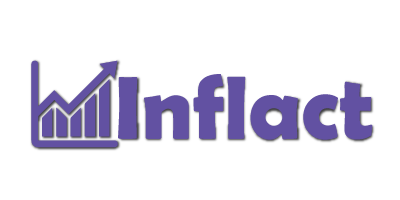A pitch deck serves as a concise, visual overview of a startup’s business model, market opportunity, solution, and financials. For most investors, it’s the first real introduction to a new company.
Pitch deck consultants help founders craft or refine these presentations. They focus on creating a compelling story, designing slides that flow, and ensuring the content lines up with what investors expect to see.
In recent years, working with a consultant has become even more valuable. With competition for startup funding growing, more founders are seeking out professional guidance to make their pitch stand out and improve their chances of attracting investors. Insights into the benefits of hiring a pitch deck consultant are now more relevant than ever, given the crowded landscape.
Seven Critical Benefits of Hiring a Pitch Deck Consultant
Bringing in a pitch deck consultant gives founders access to specialized talents that directly influence both the quality of their pitch and the results of their fundraising efforts.
1. Specialized Design and Storytelling Expertise
Pitch deck consultants blend strong design skills with a knack for storytelling. They know how to shape information so investors can absorb it quickly and easily.
They pay close attention to key visual elements:
- Visual hierarchy helps investors spot the most important details right away
- Data visualization turns complex figures into simple, digestible charts
- Brand consistency ensures every slide feels like it belongs to your company
Because investors often spend less than four minutes per deck, clear visuals and a logical story make a real difference in how well they understand your business.
2. Objective Feedback and Professional Refinement
Founders can be too close to their own story, so it’s tough to spot unclear messaging or unnecessary details. A consultant brings a fresh perspective, pinpointing where things need to be simplified or clarified.
Often, founders use jargon or assume investors know certain details. Consultants help translate your ideas into language anyone can follow. The process usually involves several rounds of edits, with each version becoming sharper and more focused on what matters most to investors.
3. Enhanced Market and Investor Intelligence
Consultants who have seen many pitches across industries know what different investors want. Venture capitalists might ask about market size and scalability, while angel investors could focus more on the founding team or early traction.
These professionals help you tailor your pitch to suit each audience. They bring:
- Insights into what investors typically ask in your sector
- Strategies for highlighting how your solution stands out
- Guidance on connecting your story to current market trends
By customizing your pitch, you’re more likely to address the questions and concerns investors actually have.
4. Significantly Higher Funding Success Rates
A professionally crafted pitch deck often leads to more investor meetings and sustained interest. The advantage comes from both the visual polish and the strategic way information is structured.
Good consultants anticipate investor questions and build answers into the deck, reducing objections before they even come up. The flow of a strong pitch deck takes investors from the problem, through your solution, and on to financials and funding needs, building confidence with every step.
5. Time and Resource Efficiency for Founders
Building a great pitch deck takes time—a lot of it. For early-stage founders, every hour spent on slides is an hour not spent on product or customers.
By bringing in a consultant, founders can hand off the research, design, and revision work. This frees up their schedule so they can focus on running the business, especially during intense fundraising periods when time is at a premium.
6. Strategic Guidance Beyond the Presentation
Consultants do more than just fix slides. Many help founders practice their pitch, prepare for tough questions, and map out meeting strategies.
This support can include:
- Advice on which numbers and milestones to feature for different types of investors
- Help preparing responses to common objections
- Tips on pacing and delivery during presentations
These extras leave founders better prepared and more confident when speaking to potential investors.
7. Long-term Relationship Building with Investors
A strong pitch deck can open doors far beyond the first meeting. Even if you don’t land funding right away, a professional presentation builds your reputation and keeps the conversation going.
Consultants help founders present both immediate goals and a longer-term vision. This approach keeps investors engaged, making it more likely they’ll consider future opportunities with your company. The quality of your deck also shapes how investors view your professionalism and your ability to deliver on your plans.
How Professional Consultants Elevate Investor Engagement
Consultants know investors have limited time and many decks to review. They use proven techniques to keep attention focused and make every slide count.
One popular method is to start with the problem, then introduce your solution, and finally show traction or results. This structure guides investors through your story in a logical way.
Consultants also adjust their approach based on the audience. For example, presentations for technical investors highlight innovation, while those for financially minded investors zero in on market size and revenue.
Some engagement strategies they use include:
- Opening with a powerful story or statistic to grab attention
- Sequencing information so each point builds on the last
- Keeping the design clean and professional, so nothing distracts from your message
Essential Expertise in a Winning Pitch Deck Consultant
Not all consultants are alike. The best bring a mix of skills that let them turn complex business ideas into simple, persuasive presentations.
Key strengths often include:
- A deep understanding of how to present financials in a way investors trust
- Familiarity with your industry’s language and key metrics
- The ability to design slides that spotlight the information investors care about
- A talent for telling your story in a way that connects logically and emotionally
This combination of abilities ensures the final pitch deck is both informative and compelling.
The Value of External Perspective in Pitch Creation
When founders spend every day immersed in their business, it gets tough to see which parts of their story might confuse outsiders. This is sometimes called the “curse of knowledge.”
A consultant brings outside eyes and can quickly spot where your explanation gets too technical or where slides need simplification.
Frequent blind spots they help address include:
- Overuse of jargon that isn’t explained
- Focusing too much on product features instead of customer impact
- Assuming the audience already understands the problem you solve
- Packing slides with too much information or leaving key points out
This third-party review leads to a pitch that any investor can understand, even if they’re new to your industry.
How AI-Powered Platforms Enhance Traditional Consulting
The latest pitch deck consulting often blends human expertise with AI-based tools. These platforms look at thousands of successful decks and funding outcomes to spot patterns that work across sectors.
AI helps consultants by:
- Analyzing which types of slides and messages appeal to specific investor groups
- Suggesting slide layouts used by winning decks in your industry
- Highlighting areas where your pitch might be missing important content
Some services now use AI to match startups with investors who have backed similar companies. This data-driven approach means your pitch is tailored to the exact interests of the people reviewing it. The blend of technology and human creativity results in decks that hit both the emotional and strategic notes investors look for.
Next Steps for Founders Seeking Funding Success
If you’re thinking about working with a pitch deck consultant, start by organizing your business materials. This might include your business plan, financial forecasts, and market analysis.
It helps to be clear on your fundraising goals—how much capital you want to raise and the type of investors you hope to reach. These details make it easier for a consultant to shape a pitch that fits your needs.
The process usually begins with a conversation about your business, followed by drafting slides, collecting feedback, and making revisions. Depending on your business’s complexity and your own feedback speed, expect the project to take anywhere from two to four weeks.
For a closer look at how professional guidance can help, exploring Qubit Capital’s pitch deck creation services for startups can offer insights into the tools and expertise available. Combining industry knowledge with data-driven analysis, these services help founders make the most of every investor interaction.
FAQs
What is the typical timeline for creating a professional pitch deck?
Most professional pitch decks take between two and four weeks to complete. This timeline covers the initial discovery phase, drafting, revisions, and final touches.
How much should startups budget for professional pitch deck services?
Pitch deck consulting usually costs between $1,500 and $4,000. The price depends on the consultant’s background, your business’s complexity, and any extra services you might need, like financial modeling.
Can pitch deck consultants help with investor introductions?
Some consultants do provide introductions to investors, but it’s not standard practice. Their main focus tends to be on building the presentation rather than arranging meetings.
What materials should founders prepare before hiring a consultant?
It helps to have your business plan, financial forecasts, competitor research, and any existing slides ready. The more information you can share, the faster and more accurately a consultant can represent your company.
How do AI-powered fundraising platforms differ from traditional consultancies?
AI-powered services use data to match startups with relevant investors and analyze winning pitch patterns. Traditional consultancies rely more on personal experience. Some platforms now combine both, using data insights alongside expert feedback to create customized pitches.




